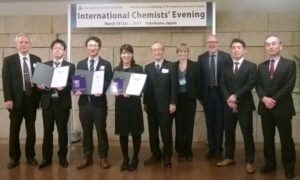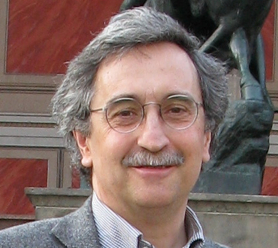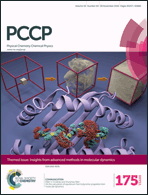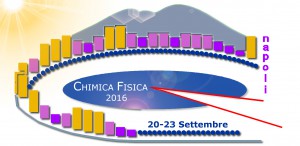PCCP are delighted to announce the winners of the 2017 PCCP Prizes for Outstanding Achievement of Young Scientists in Physical Chemistry and Chemical Physics. These were awarded at a prize ceremony held at the 97th Annual Meeting of the Chemical Society of Japan on the 16th March in Tokyo, Japan. The winners each received a commemorative book and a PCCP Prize certificate.

From left: Prof. Yasuhiro Iwasawa (University of Electro-Communications, former CSJ president, founder of PCCP-CSJ award); Prof. Ryou Kubota (prize winner); Prof. Kenta Mizuse (prize winner); Prof. Miho Hatanaka (prize winner); Prof. Hisashi Yamamoto (Chubu University, Current CSJ President); Sarah Thomas (RSC Program Manager); Robert Parker (RSC Chief Executive Officer); Hiromitsu Urakami (RSC Manager, Japan); Prof. Mitsuo Sawamoto (Kyoto University)
(1) Dr. Ryou Kubota
Assistant Professor
Graduate School of Engineering, Kyoto University
“Artificial Regulation and Imitation of Living Systems based on Supramolecular Coordination Chemistry“
(2) Dr. Kenta Mizuse
Assistant Professor
Tokyo Institute of Technology
Department of Chemistry, School of Science
“Direct imaging study of gas-phase ultrafast molecular dynamics using a newly developed space-slice ion imaging technique”
(3) Dr. Miho Hatanaka
Assistant Professor
Department of Chemistry,
Faculty of Science and Engineering, Kindai University
“Theoretical Study of the Lanthanide Chemistry: structural fluctuation, catalytic ability, and luminescence“















